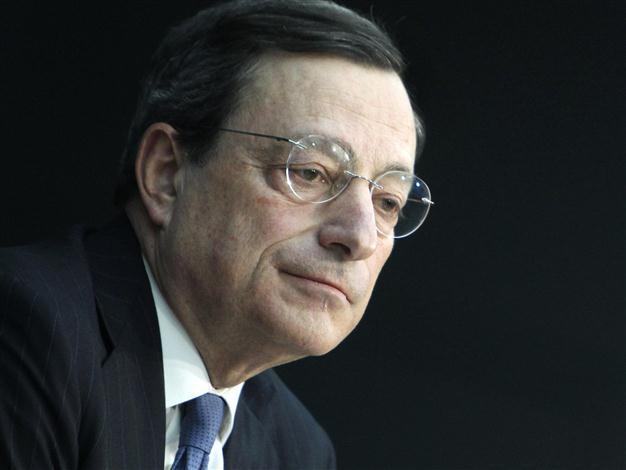Guardian of euro keeps interest rate unchanged
FRANKFURT - Agence France-Presse

Mario Draghi, President of the European Central Bank listens to a question a press conference in Frankfurt, Germany, Thursday, Jan. 12, 2012. AP Photo
The European Central Bank (ECB) held its key interest rates steady as expected yesterday, leaving eurozone borrowing costs at historical lows as it assessed the impact of two straight months of rate cuts.The ECB’s policy-setting governing council voted to leave the rate for its main refinancing operations unchanged at 1.0 percent at its regular monthly meeting here, the first of 2012.
The Bank, which cut interest rates in both November and December, had been widely expected to hold its fire this month as it continues to assess how effective the previous moves have been.
Earlier, the Bank of England also kept its key interest rate at a record low 0.50 percent and opted not to change its stimulus plans despite the fragile state of the British economy.
Loose colleteral rules
Last month -- on the same day that EU leaders met in Brussels in what was seen as a make-or-break crisis summit -- the ECB brought eurozone borrowing costs back down to 1 percent, effectively reversing two rate hikes last year.
On top of that, it offered banks in the region an unlimited amount of liquidity by loosening collateral rules, cutting the minimum reserve ratio and launching new three-year loans at super-cheap rates.
With all that now feeding through into the system, the ECB would now want to wait and see how those moves pan out, analysts said.
No surprise
“That the ECB decided not to cut its repo rate for a third consecutive month is no surprise given the slightly firmer tone of some recent data and the fact that the rate is already back at its recession low of 1.0 percent,” said Capital Economics’ European economist Jonathan Loynes.
On Jan. 10, figures showed that the German motor driving eurozone growth grew by 3.0 percent over the whole of 2011, even if growth petered to a halt in the final quarter.
“It is possible that it will cut again over the coming months, although we think that 1 percent could well be the bottom again,” Loynes said.
The bigger question, the economist argued, was whether Draghi would be any more open than he has been in the past to the idea of more decisive action to resolve the eurozone debt crisis -- in particular much bigger purchases of weaker members’ sovereign debt.
A controversial bond-buying program launched under the ECB’s previous head, Frenchman Jean-Claude Trichet, is only temporary, Draghi has repeatedly insisted.
He did so again last month and “We think it is unlikely that he will change his tune today,” Loynes aid.
“The ECB may engage in some form of Quantitative Easing in time in order to meet its monetary policy objectives. But for now at least -- rightly or wrongly -- it remains very firmly opposed to suggestions that it should tackle governments’ fiscal problems for them.”
The effects of the unprecedented liquidity measures also remain unclear at the start of the new year.
















